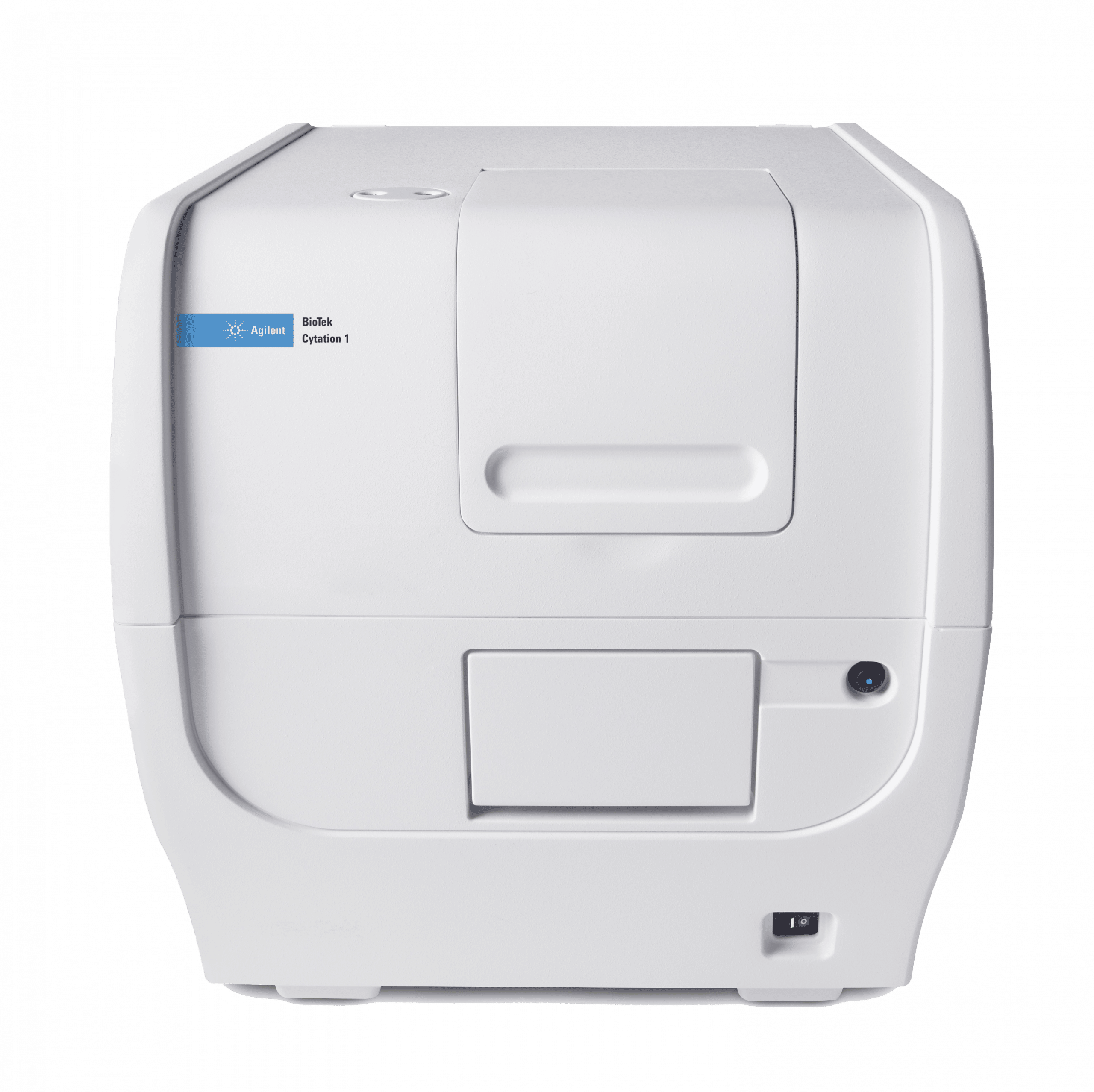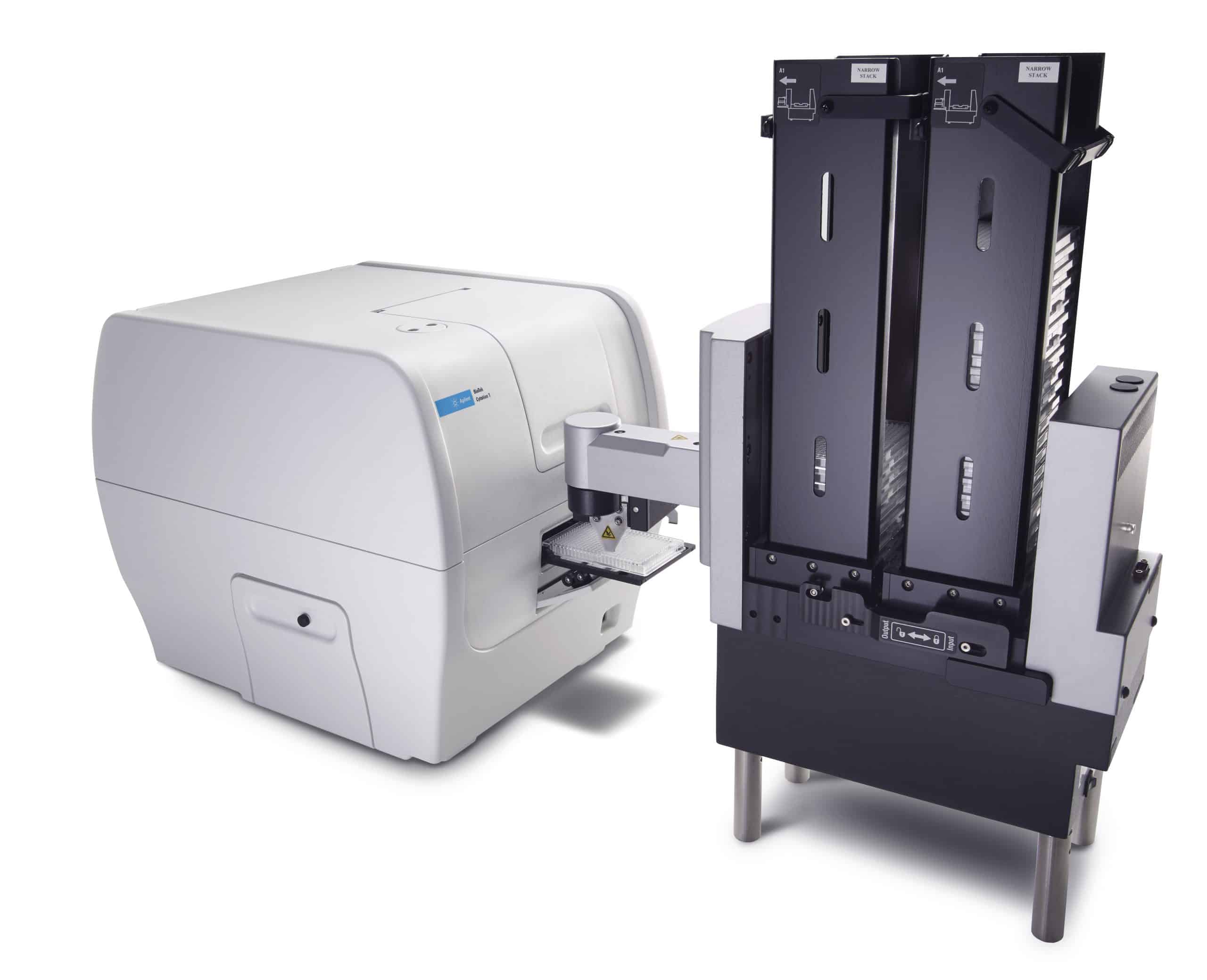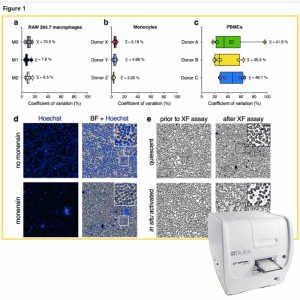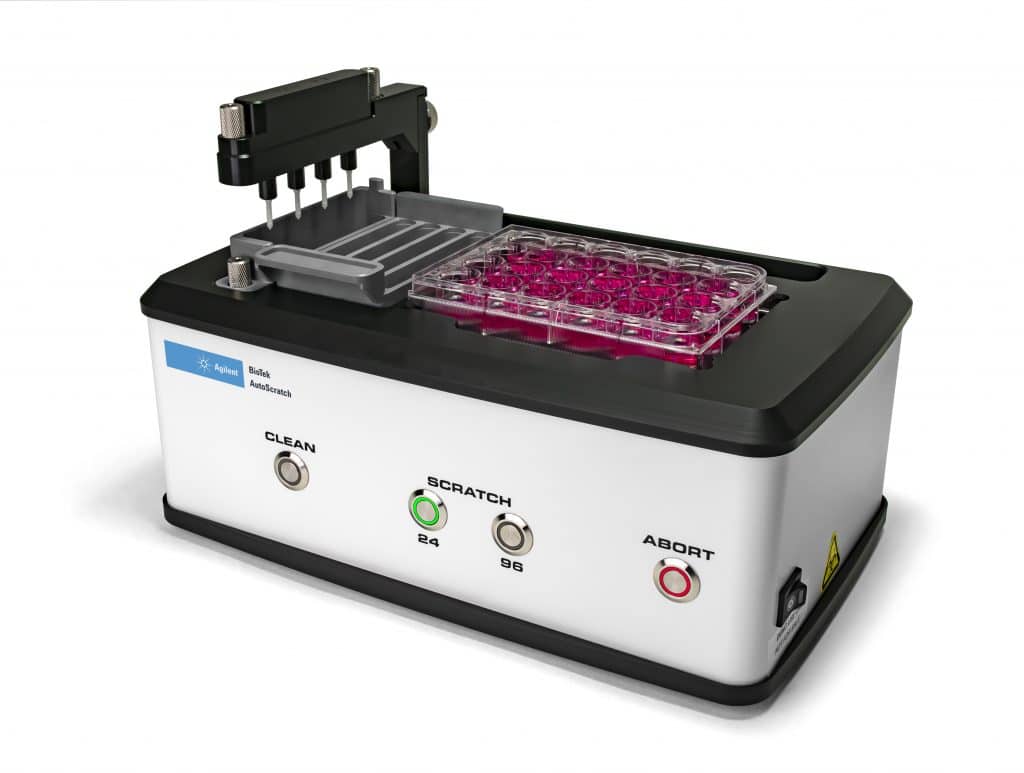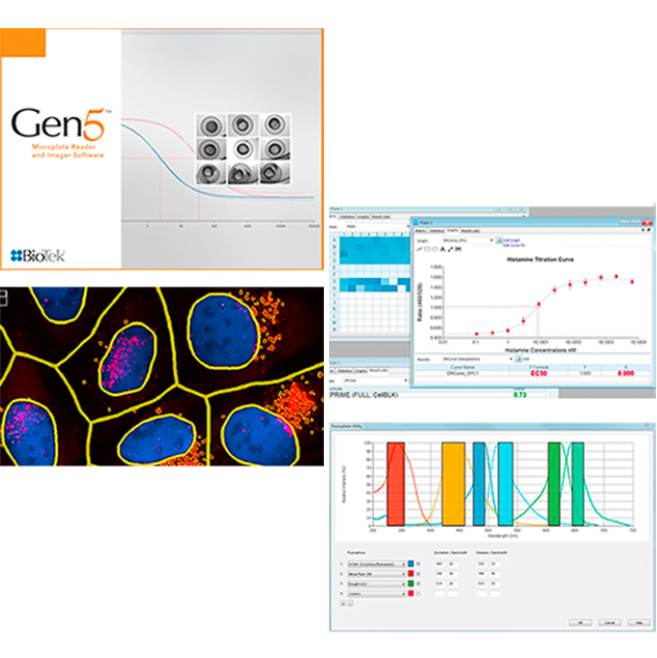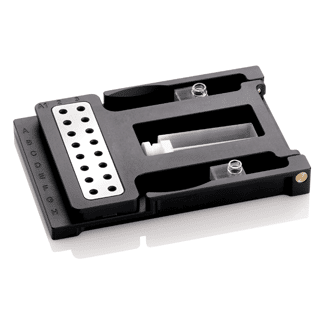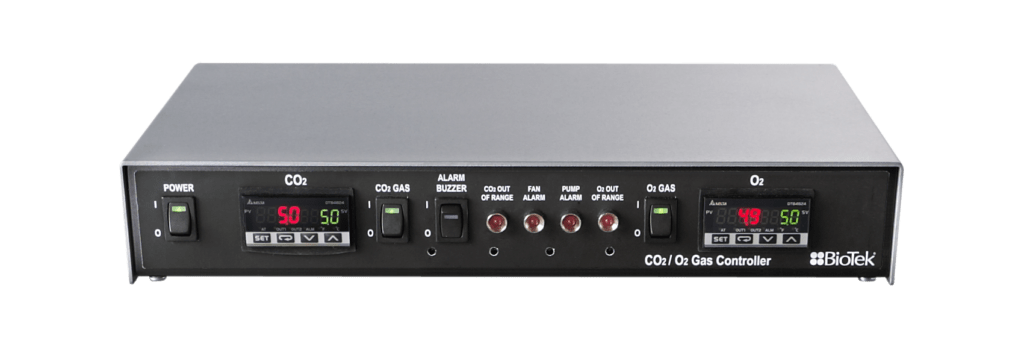BioTek Cytation 1
Information
Cytation1 Cell Imaging Multi-Mode Reader combines fluorescence and high contrast brightfield imaging with conventional multi-mode detection without the expense and complexity commonly associated with other digital microscopy systems. This unique, patented design provides both quantitative phenotypic cellular information with well-based quantitative data. Cytation 1’s multi-mode detection module includes high sensitivity filter-based fluorescence and a monochromator system for UV-Vis absorbance. Temperature control and shaking are standard; CO2/O2 control and reagent injectors are available. BioTek’s powerful Gen5 software makes image capture and plate reading easy.
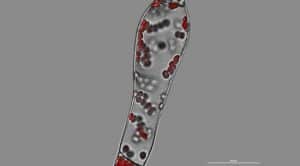
- Affordable, patented, quantitative digital microscopy and optional multi-mode microplate detection
- Augmented Microscopy™ using Gen5 software for seamless image capture to quantitative publication ready data with no extensive training required
- Fluorescence and high contrast brightfield imaging from 1.25x to 60x to capture large regions of interest to 60x or intracellular details
- Affordable automation: automated XY stage, focus, exposure, image capture and LED intensity
- Cell friendly design – 4-Zone incubation to 45°C with Condensation Control, CO2/O2 control, angled injectors and lidded plate handling
- High performance filter-based fluorescence detection with convenience of monochromator based UV-Vis absorbance
Have you read the testimonial of Joëlle J.E. Janssen about how she used the Cytation 1 during her PhD? Read it here: The Cytation 1 enabled me to obtain high-quality brightfield images of white blood cells
-
Configurations
Imaging Plus Multi-Mode Configurations
CYT1FAV CYT1FA CYT1V Fluorescence and high contrast brightfield imaging••Monochromator absorbance ••Filter/dichroic fluorescence ••Luminescence / filtered luminescence •• -
Specifications
GENERAL Detection modes UV-Vis absorbance Fluorescence intensity Luminescence Fluorescence polarization Time-resolved fluorescence Read methods Endpoint, kinetic, spectral scanning, well area scanning Microplate types Monochromator: 6- to 384-well plates Filters: 6- to 1536-well plates Imaging: 6- to 1536-well plates Other labware supported Microscope slides, Petri and cell culture dishes, cell culture flasks (T25), counting chambers (hemocytometer) Take3 Micro-Volume Plates Temperature control 4-Zone incubation to 45 °C with Condensation Control™; Variation +0.2 °C at 37 °C Shaking Linear, orbital, double orbital Software Gen5™ Microplate Reader and Imager Software Gen5 Image+ and Image Prime software available for full image analysis Gen5 Secure available for 21 CFR Part 11 Automation BioStack and 3rd party automation compatible BioSpa 8 Automated Incubator compatible CO2 and O2 control (option) 0 – 20% CO2 control and 1 – 19% O2 control, with optional Gas Controller Models for both CO2 and O2 or CO2 only are available IMAGING SYSTEM Imaging mode Fluorescence High Contrast Brightfield (2.5x Zeiss, 4x, 10x, 20x, 40x and 60x) Imaging method Single color, multi-color, montage, time lapse, z-stacking Image processing Z-projection, image stitching Camera 16-bit gray scale, Sony CCD Objective capacity 2 user-replaceable objectives Objectives available 1.25x, 2.5x (2.25x eff),2.5x (2.75x eff), 4x,10x, 20x, 40x, 60x Image filter cube capacity 4 user-replaceable fluorescence cubes plus brightfield channel Imaging filter cubes available DAPI, CFP, GFP, YFP, RFP, Texas Red, CY5, CY7,Acridine Orange (ACR OR), CFP-YFP FRET, propidium,Iodide, chlorophyll, phycoerythrin, CY5.5, TagBFP, Alexa568, Ex377 / Em647 Imaging LED cubes available 365 nm, 390 nm, 465 nm, 505 nm, 523 nm, 590 nm, 623 nm, 655 nm, 740 nm Automated functions Autofocus, auto LED intensity, auto exposure Autofocus method Image-based autofocus User-trained autofocus Laser autofocus (option) Positional controls Software control Image collection rate Image-based autofocus: 96 wells, 1 color (DAPI), 4x, 6 minutes 96 wells, 3 colors, 4x, 12 minutes Laser autofocus: 96 wells, 1 color (DAPI), 4x, <3 minutes 96 wells, 3 colors, 4x, <7 minutes, 30 seconds Burst Mode: 10 fps, single well, single color at <= 50ms integration time Image Analysis Software option Gen5 Image+: Image analysis Gen5 Image Prime: Advanced image analysis Gen5 Secure Image+: Advanced image analysis, 21 CFR Part 11 features FLUORESCENCE INTENSITY Light source Xenon flash Detector PMT Wavelength selection Deep blocking band pass filters / dichroic mirrors Wavelength range Filters: 200 – 700 nm (850 nm option) Dynamic range 7 decades Sensitivity Fluorescein: 0.25 pM (0.025 fmol/well, 384-well plate) Reading speed (kinetic) 96 wells: 11 seconds 384 wells: 22 seconds LUMINESCENCE Wavelength range 300 – 700 nm Dynamic range >6 decades Sensitivity 10 amol ATP (flash) 100 amol (glow) FLUORESCENCE POLARIZATION Light source Xenon flash Detector PMT Wavelength selection Filters Wavelength range 400 nm – 700 nm Sensitivity 1.2 mP standard deviation at 1 nM fluorescein TIME-RESOLVED FLUORESCENCE Light source Xenon flash Detector PMT Wavelength selection Filters Sensitivity Europium 40 fM (4 amol/well, 384-well plate) ABSORBANCE Light source Xenon flash Detector photodiode Wavelength selection Monochromator Wavelength range 200 – 999 nm, 1 nm increment Monochromator bandwidth 2.4 nm Dynamic range 0 – 4.0 OD Resolution 0.0001 OD Pathlength correction yes Monochromator wavelength accuracy + 2 nm Monochromator wavelength repeatability + 0.2 nm OD accuracy <1% at 2.0 OD <3% at 3.0 OD OD linearity <1% from 0 to 3.0 OD OD repeatability <0.5% at 2.0 OD Stray light 0.03% at 230 nm Reading speed (kinetic) 96 wells: 11 seconds 384 wells: 22 seconds REAGENT INJECTORS (OPTION) Supported detection modes All modes Number 2 syringe pumps Supported labware 6- to 384-well plates, Petri and cell culture dishes Dead volume 1.1 mL with back flush Dispense volume 5 – 1000 µL in 1 µL increments Plate geometry 6- to 384-well microplates Dispense accuracy +1 µL or 2% Dispense precision <2% at 50 – 200 µL PHYSICAL CHARACTERISTICS Power 100-240 VAC, 50/60 Hz (24VDC external power supply, 150W min) Dimensions 20″ D x 16.5″ W x 17.5″ H (50.8 cm x 41.91 cm x 44.5 cm) Weight 65 lbs (29 Kg) REGULATORY Regulatory CE and TUV marked. Models for In Vitro Diagnostic use are available. -
Peltier Cooling Module
The Peltier Cooling Module for Agilent’s Cytation™ 5 and Cytation 1 Cell Imaging Multi-Mode Readers helps maintain temperature stability inside the reading chamber, regardless of changes in ambient (room) temperature and heat produced by electro-mechanical operations within the reader.
The compact Peltier Cooling Module attaches easily to Cytation’s rear case. (See image)Instrument without Peltier Cooling Module:
The instrument’s interior temperature (red) follows ambient room temperature (green). It is also significantly warmer than ambient temperature because of heat produced by the instrument. This can result in assay data variation through the day, or drifts for kinetic assays run at ambient temperature Instrument with Peltier Cooling Module:
The instrument’s interior temperature (blue) is stabilized which results in more consistent assay data, and higher quality room temperature kinetic data Benefits of the Peltier Cooling Module for Cytation:
• Helps maintain the instrument’s internal ambient temperature stability, with less than 1 °C rise over external ambient, enabling more consistent results
• Quickly reduces internal temperature following incubated assays up to 3x faster, to allow both incubated and ambient assays to be run more efficiently in multi-user environments.Peltier Cooling Module is available for:
• Cytation Multi-Mode Reader
• Cytation 5 Cell Imaging Multi-Mode Reader
• Cytation 1 Cell Imaging Multi-Mode Reader -
Features
Collect both phenotypic data and quantitative data from one instrument. Image and data analysis are provided with Gen5 software for all applications
Patented Hybrid optics: sensitivity of filters, flexibility of monochromator
Cytation 5’s hybrid optical design offers filter-based fluorescence optics for high transmission and high sensitivity, while the available monochromator optics offers convenience and assay flexibility. Multiple fluorescence measurement modes include fluorescence intensity, time-resolved fluorescence and fluorescence polarizationAugmented Microscopy™ using Gen5 software: image capture to quantitative publication ready data.
Gen5 software takes you automatically through the steps typically performed in microscopy: capture > process > analyze > publish. The interface is logical and user-friendly, so your imaging workflows can be up and running without extensive training.Fluorescence and high contrast brightfield imaging
The powerful imaging module in Cytation 1 offers four color channels plus brightfield, from 1.25x for imaging larger samples to 60x for intracellular details. More than 15 filter/LED cubes are available, supporting a broad range of imaging applications.Affordable automation
Cytation 1 has an automated XY stage, autofocus, auto exposure and auto LED intensity for efficient capture of high quality images. The automated features in Cytation 1 and Gen5 make it easy for you to find the region of interest, then quickly find the best settings to capture the images. Gen5 software is simple to use, without extensive training.Cell friendly design
Live cell assays require an optimal environment. Cytation 1 has temperature control and shaking, plus CO2 / O2 control, to facilitate longer-term kinetic studies.High performance and convenience
To optimize multi-mode detection, Cytation 1 has high performance filters for fluorescence and monochromator-based UV-Vis absorbance for convenient wavelength selection in 1 nm increments.
Brochures
Application notes
Please login to be able to see the application notes.
